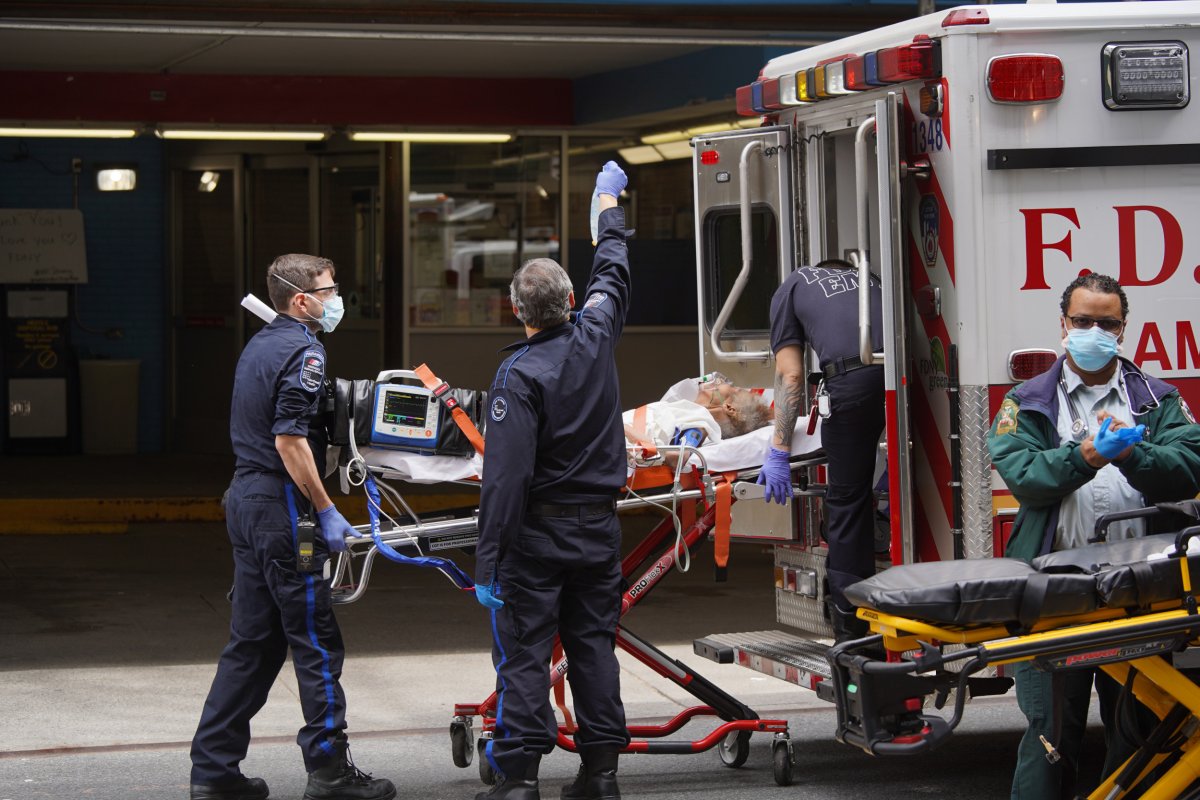Our names are New Latthivongskorn and Denisse Rojas. We are two of the more than 800,000 young immigrants who have been protected from deportation under the Deferred Action for Childhood Arrivals program. We are also two of the estimated 29,000 DACA recipients working as health care practitioners, including physicians and physicians-in-training, whose futures are in jeopardy amid a global pandemic.
New was the first undocumented student to graduate from the University of California, San Francisco, School of Medicine. He is now a first-year medical resident at Zuckerberg San Francisco General Hospital and Trauma Center. He currently works in the delivery room, where he instructs new parents on how to protect their newborns from COVID-19, but he will soon transfer to the emergency room and the inpatient wards, as the crisis is demanding "all hands on deck" support.
Denisse is one of the first undocumented students to enroll at the Icahn School of Medicine at Mount Sinai in New York City, where she is a fourth-year medical student. She volunteers for the hospital, helping it acquire masks, isolation gowns, ventilators and other personal protective equipment necessary for fighting COVID-19. She is also providing telehealth appointments at the hospital's free clinic in Harlem, helping patients avoid exposure and assessing the symptoms of people with and without the virus.
DACA is what is allowing us to practice medicine in this country. America has been Denisse's home since she was a baby, and New immigrated here with his family when he was 9. We identify as Americans and consider it our duty to help this country in a crisis. Yet any day now, the Supreme Court could decide on our fate. So while we struggle to help contain the rapid spread of the coronavirus, in the back of our mind looms the threat of deportation.
For many years, we feared our immigration status would impede our goals and aspirations, and separate us from our loved ones and communities. We witnessed our families navigate complex health decisions without appropriate guidance and access to necessary care, and we made the commitment to pursue careers in health care despite having it being denied from us.
Since DACA was announced in 2012, we have finished college, enrolled in medical school and co-founded a national organization called Pre-Health Dreamers, serving more than 800 undocumented youth committed to becoming health professionals.
The Association of American Medical Colleges, joined by Pre-Health Dreamers and 31 organizations representing a range of health professional education groups, noted in an amicus brief to the U.S. Supreme Court that it can take a decade or more to educate and train a new physician. The decision to expend vast amounts of time, money and effort in educating and training DACA recipients in the health care sector was made based on the expectation that we would be able to serve the public once educated and trained.

Even now, because the pandemic has forced the closure of U.S. Citizenship and Immigration Services offices that help to process DACA renewals, people are at risk of losing work authorization and deportation protections, though they did everything right. The Trump administration should automatically extend DACA protections during this period so that health care providers—like all of us—can focus on fighting this pandemic without added anxiety and stress.
The way America gets through this crisis is by recognizing the value and contributions of all our neighbors. We must all do our part, and we hope the Supreme Court and the Trump administration will honor our oath to serve this nation by keeping DACA protections in place. We stand ready and willing to continue to share our talents with the country we have long called our home.
New Latthivongskorn is a family and community physician at the Zuckerberg San Francisco General Hospital. He graduated from the University of California, San Francisco, School of Medicine.
Denisse Rojas is a fourth-year medical student at the Icahn School of Medicine at Mount Sinai. She is also enrolled at the Harvard Kennedy School of Government, pursuing a master's degree in public policy.
The views expressed in this article are the writers' own.
Uncommon Knowledge
Newsweek is committed to challenging conventional wisdom and finding connections in the search for common ground.
Newsweek is committed to challenging conventional wisdom and finding connections in the search for common ground.
About the writer
To read how Newsweek uses AI as a newsroom tool, Click here.








